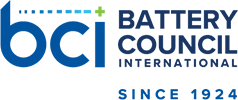
This is the first of our three-part blog series during this important week.
What does safety mean to you? For the 20,000-plus employees of the lead battery industry, it starts with “Everyone Going Home Safe and Healthy Every Day.”
The industry is putting a special focus on safety August 13-19 by celebrating the second annual Safe + Sound Week. The Occupational Safety and Health Administration (OSHA) organizes the nationwide event to raise awareness and understanding of the value of safety and health programs that include management leadership, worker participation, and a systematic approach to finding and fixing hazards.
Profiles in Participation: East Penn Manufacturing and Exide Technologies
At East Penn Manufacturing in Berks County, Penn., facilities will recognize employees who exhibit safe work practices and suggest ways to enhance processes and promote daily safe work practices. Those employees selected by each of the company’s safety committees will have their photo displayed on the video boards in each lunchroom, along with the recognized practice. In addition to the employee, the safety committee member or health and safety employee who recommended that employee will be recognized.
At Georgia-based Exide Technologies, Dan Nicholls, director of Environmental, Health & Safety (EHS), says that close to 3,000 employees across 24 North America locations, including corporate headquarters, will use the week to get employees involved and show that leadership is committed to a safe working environment.
“This year we are concentrating on internal participation and communication for Safe + Sound Week. But we’re looking forward to future opportunities to host a community event or to partner with other manufacturers in the area.”
The 2017 Sustainable Consortium Impact Report recognized the lead battery industry for its strong record on worker health and safety.
Nicholls noted that his company asked employees for their input on how to observe Safe + Sound Week, and found that it has generated a variety of ideas. For example, during regular risk assessment inspections, employees will join inspectors to get a behind-the-scenes view.
“Employees are at the front line and understand where the risks are, and they may point out things that they have the hands-on experience to recognize. In this smaller group setting, employees may feel more empowered to contribute to improving worker safety.”
Exide will post Safe + Sound Week banners and signage throughout facilities, host a series of EHS town hall meetings, and have fun contests. Employees have exhibited a lot of enthusiasm, and in some cases, their competitive streak has been revealed.
“We have one small site with just five people who are driving significant activities every day of the week to focus on safety,” Nicholls added.
Our Industry’s Every-Day Commitment
For the broader industry, the weeklong emphasis on safety is layered over an existing daily commitment to employee health and safety with practices that meet or exceed federal and state requirements. Specifically:
- The U.S. lead battery industry exceeds OSHA standards by providing progressive safety training, on-site hygiene facilities and modern safety equipment, including state-of-the-art engineering controls.
- For years, no employee in the lead battery industry has had a blood lead level exceeding the current OHSA removal limit, and at the end of 2017, average blood lead levels were more than 75 percent below what OSHA requires.
- Manufacturers and recyclers use high-efficiency systems to filter facility air to ensure a safe workplace atmosphere.
Check back this week for two additional blog posts on how our industry is uniting for safety in our communities and to produce safe products.
Learn More
- Community and Employee Safety
- New 2017 Impact Report Puts Lead Batteries Among Top Five Performers
- Lead batteries are a safe, reliable and trusted technology


